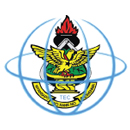The Green Hydrogen Group under The Brew-Hammond Energy Centre, College of Engineering (KNUST), has held a one-day workshop on Social Perspectives of Green Hydrogen in Decentralized Energy Systems in Ghana.
The event, held on Friday, 24th October 2025, at the Antarctica Conference Room, brought together researchers, academics, and energy stakeholders to explore how social factors can influence the successful adoption of green hydrogen technologies in Ghana’s renewable energy transition.
In his opening remarks, Dr. Felix Amankwah from the University of Energy and Natural Resources (UENR) welcomed participants and highlighted the purpose of the workshop. He explained that the session aimed to create awareness of the relevance of green hydrogen energy to Ghana’s sustainable future.
“This workshop aims to explore how social factors, such as public perception, acceptance, and inclusivity, can shape the successful implementation of green hydrogen technologies,” he said.
The Director of the Brew-Hammond Energy Centre, Prof. David Ato Quansah, highlighted the Centre’s contribution to advancing energy research and practice in Ghana, Africa, and beyond. He outlined the roles of the various research groups within the Centre and reaffirmed their commitment to supporting innovative and sustainable energy solutions.
Dr. Patrick Boakye, Chair for the Green Hydrogen Group, gave a brief presentation on Ghana’s renewable energy journey, emphasising the country’s strides toward sustainability.
“The benefits of hydrogen are immense, but we must not overlook the social perspectives which are key to its acceptance and adoption in Ghana,’’ he shared.
Dr. Felix Amankwah speaking on the Social Perspective on Green Hydrogen in Decentralized Systems in Ghana, emphasised the need to consider community engagement, safety, and equity in implementing green hydrogen systems. He stressed the need for stakeholder engagement and continuous dialogue, stating, “Workshops like this are essential for building consensus and ensuring that future energy projects are socially inclusive and sustainable.”
Mr. Emmanuel Yeboah guided participants through a questionnaire titled “Survey on the Social Perspectives of Green Hydrogen in Decentralized Energy Systems in Ghana.” The survey aimed to collect participants’ views on public understanding and potential social challenges related to hydrogen energy adoption.
Participants raised questions on the safety aspects of hydrogen production, storage, and supply in Ghana, which sparked a productive discussion on public awareness and safety protocols.
The workshop ended with a call for stronger collaboration among academia, industry, and policymakers to ensure that Ghana’s pursuit of green hydrogen energy integrates both technical and social dimensions for lasting impact.

